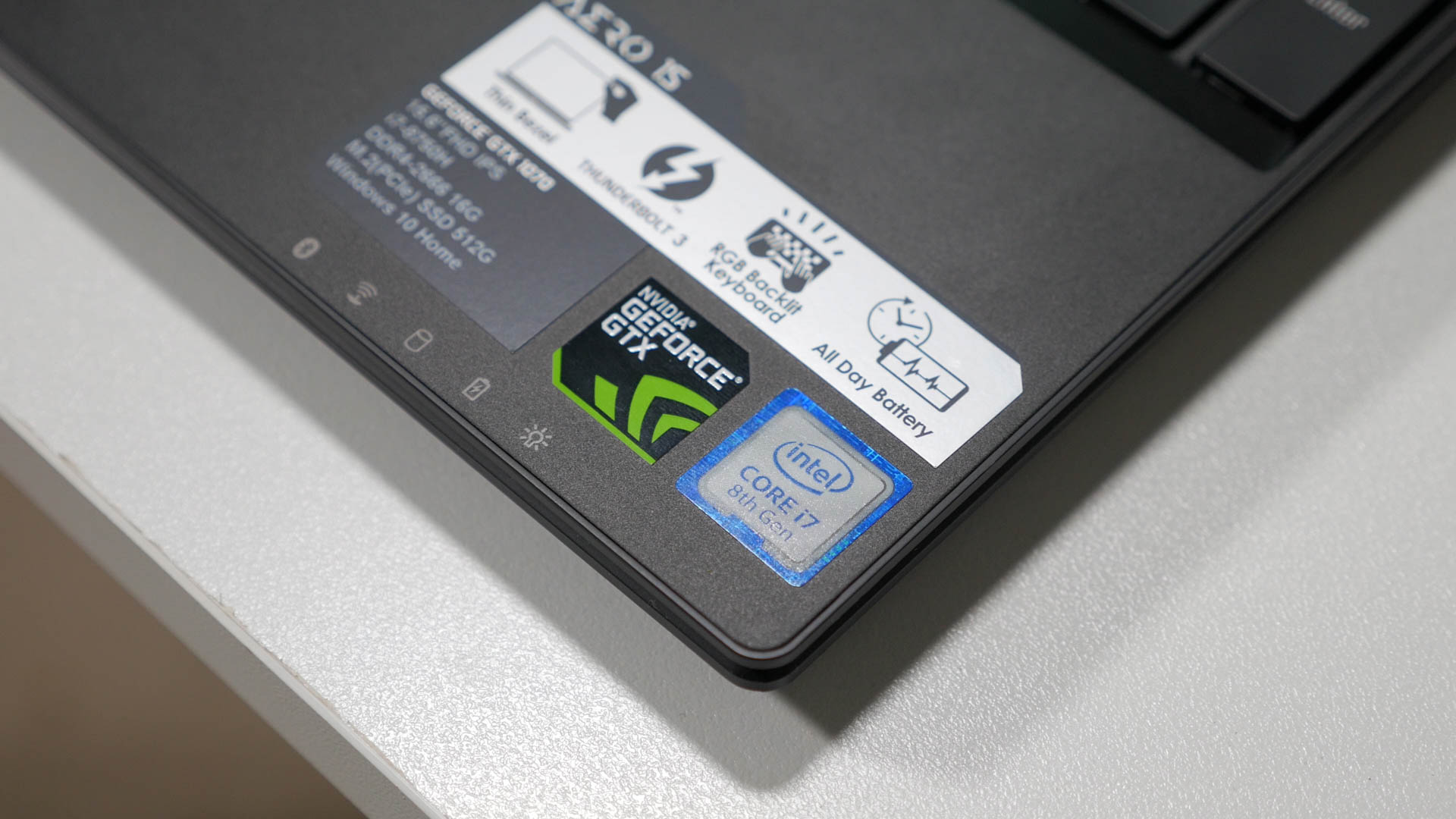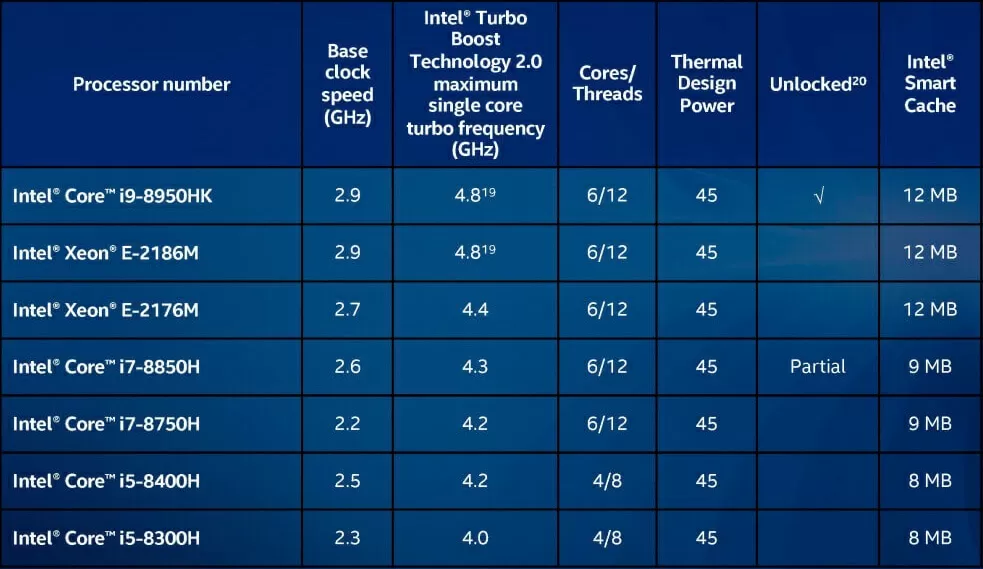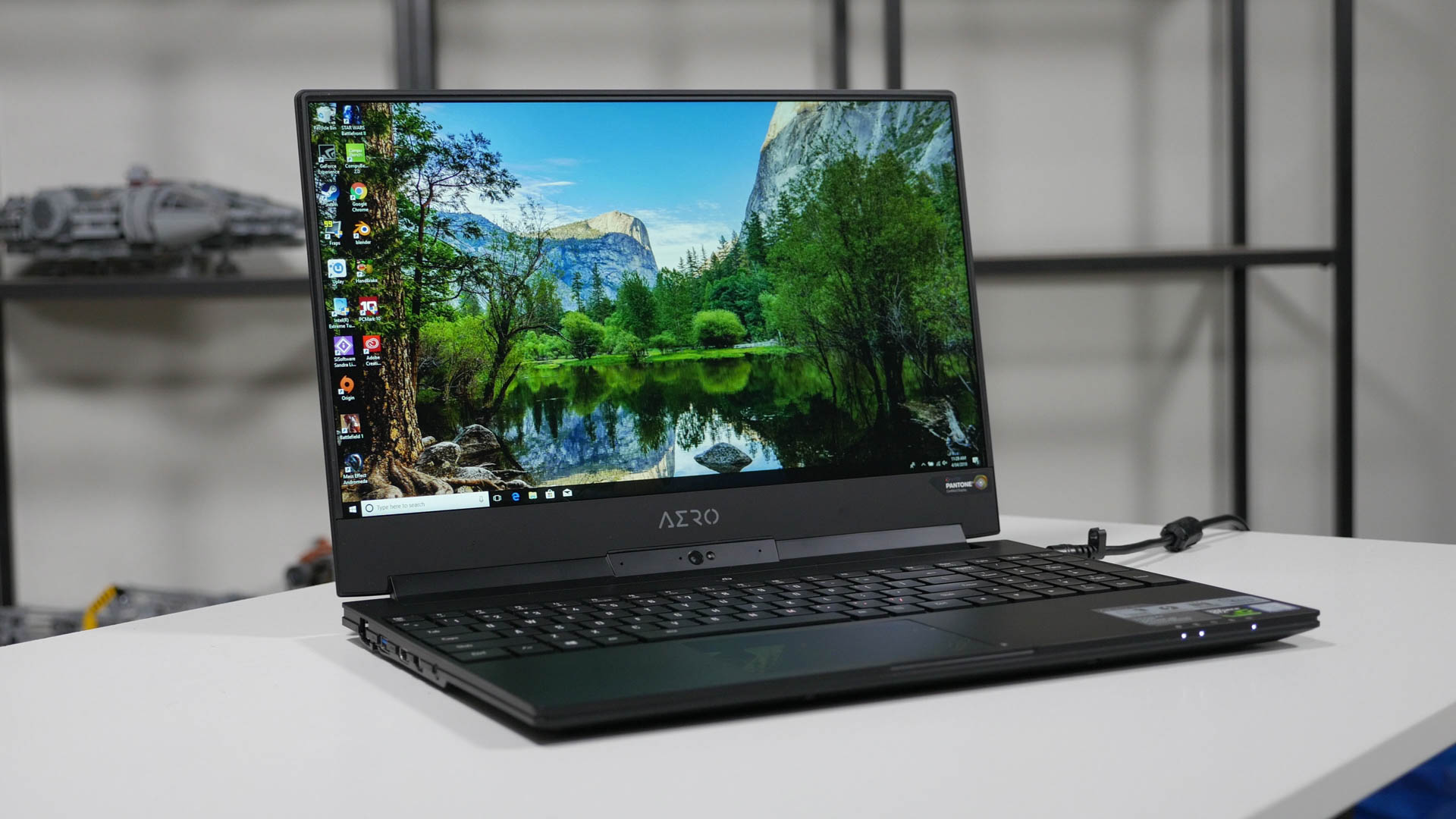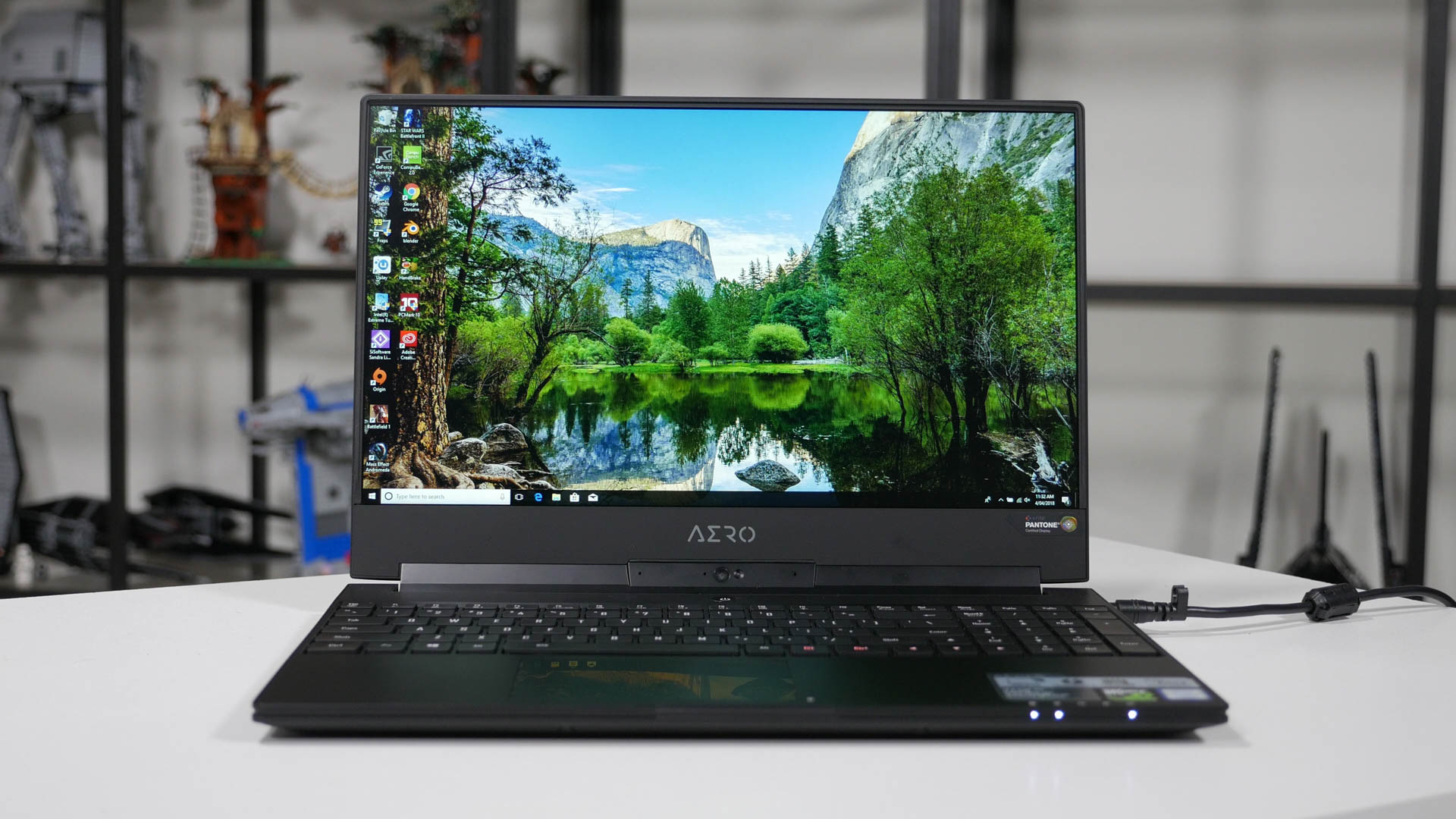This week Intel unveiled a new range of six-core Coffee Lake laptop CPUs, among many other announcements. Today, we're putting one of these CPUs to the test. The Core i7-8750H is one of seven new Coffee Lake H-series processors designed for performance notebooks, workstations and gaming laptops.
The Core i7-8750H is essentially the successor to the widely popular 'Kaby Lake' Core i7-7700HQ that was used in nearly every top-end gaming laptop over the last year or so. I expect the i7-8750H will also be the go-to chip for gaming laptops and other performance mobile devices, so this review will be useful to anyone looking to upgrade to a new Coffee Lake H-series system.

The key improvement to the i7-8750H is in its core count: we're now looking at 6 cores and 12 threads, up from 4 cores and 8 threads in the i7-7700HQ while keeping to the same 45W TDP. To fit these extra cores under the same power envelope, Intel has gone with the same approach they used with 'Kaby Lake Refresh' U-series CPUs: the base clock speed has been reduced from 2.8 GHz in the 7700HQ, to just 2.2 GHz with the 8750H.
While the base clock has been reduced, Intel is pushing single-core performance higher with these new 8th gen processors. The 8750H hits a maximum of 4.1 GHz on a single core, up from 3.8 GHz on the 7700HQ. It's also capable of this same 4.1 GHz clock speed on two cores, along with 4.0 GHz on up to four cores, and 3.9 GHz on up to six cores. That's a pretty big jump in clock speed considering the 7700HQ topped out at 3.4 GHz in all core workloads.
You'll also see 9MB of L3 cache in the 8750H, manufactured using Intel's 14nm++ process, the same as desktop Coffee Lake parts.

Joining the i7-8750H in the line-up is another hexa-core Core i7, the i7-8850H, which features increased base and boost clock speeds. The Core i5 line with the 8400H and 8300H remain four-core, eight-thread parts, while at the top we have the new unlocked Core i9-8950HK.
The use of the Core i9 branding here is interesting, as we've previously seen that used with Intel's 10+ core HEDT Skylake-X CPUs. However, the i9-8950HK is just a 6 core, 12 thread CPU like the other Coffee Lake H-series parts but running at higher clocks than the 8850H and an increased 12MB L3 cache. It's also fully overclockable, unlike the rest of the lineup.
The Coffee Lake H-series is rounded out with two Xeon chips for mobile workstations. Those wanting to buy a gaming laptop won't see these chips inside their system but they are technically part of the new Coffee Lake line-up and they will be great options for premium productivity-oriented devices. Hopefully we'll be able to get our hands on devices with the full range of Coffee Lake-H CPUs inside in the next few months, but for now we're testing the Core i7-8750H.
Our test system is the new Gigabyte Aero 15, which we'll be reviewing very soon. Aside from the 8750H, this laptop also packs an Nvidia GeForce GTX 1070 Max-Q GPU, 16GB of DDR4-2666 memory, a 512GB PCIe SSD, and a 1080p 144Hz display.

A quick note before we get to the benchmarks. Testing laptop hardware can be a bit tricky, especially apples-to-apples, because we can't just swap out components like the CPU and GPU to remove bottlenecks and make systems identical where necessary. But throughout the benchmarks ahead, we'll be focusing on the closest possible comparisons we can make.
As the Aero 15 only has a GTX 1070 Max-Q, in some GPU and gaming tests we'll be GPU-limited. However this does present the most real-world results as the vast majority of laptops to use this CPU will have a discrete GPU no faster than a GTX 1070. Yeah, you can get faster GPUs like the GTX 1080 in laptops, but they're expensive and typically not the most popular options.
I did make one hardware change to the Aero 15 for this CPU review, and that was to swap the memory configuration from single- to dual-channel. This laptop ships with a single 16GB stick inside, but as most other laptops in our charts use dual-channel memory, I swapped the single 16GB stick for two 8GB sticks at the same speeds. On to the test results...
